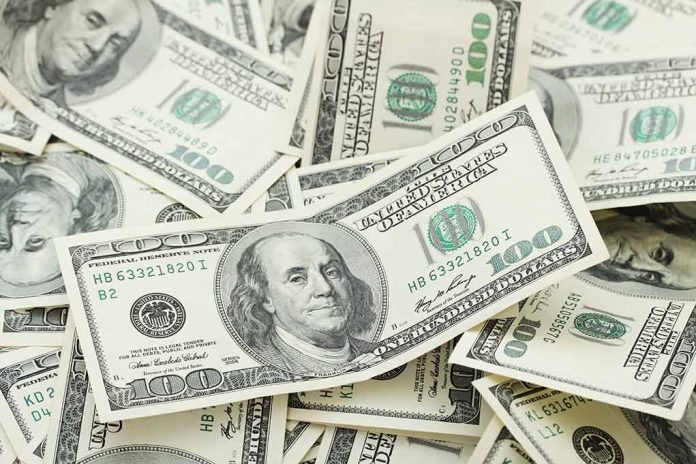
Publishers Clearing House, a company once synonymous with sweepstakes and oversized checks, has been forced to pay $18.5 million in consumer refunds after the FTC exposed its dark pattern marketing schemes targeting vulnerable Americans, all while the company scrambles to survive bankruptcy.
Key Takeaways
- Publishers Clearing House must refund $18.5 million to 281,724 consumers misled by deceptive marketing tactics falsely suggesting purchases increased sweepstakes winning chances.
- PCH employed “dark patterns” including misleading emails with official-looking subject lines, hidden fees, and false “risk-free” purchase claims while targeting seniors and low-income consumers.
- Despite filing for Chapter 11 bankruptcy protection, PCH claims it will continue awarding prizes while transitioning from traditional mail campaigns to a digital business model.
- The FTC settlement requires PCH to separate sweepstakes entries from sales pitches, clearly disclose shipping costs, and destroy consumer data collected before 2019.
- Affected consumers will receive refund checks automatically with no action required; recipients should cash checks within 90 days.
FTC Cracks Down on Deceptive Marketing Practices
The Federal Trade Commission has begun distributing over $18 million in refunds to nearly 282,000 consumers who were victims of Publishers Clearing House’s deceptive marketing schemes. This refund program stems from a June 2023 court order that required PCH to pay $18.5 million in consumer redress and fundamentally change its sales and sweepstakes practices. The regulatory action comes after an extensive investigation revealed PCH deliberately misled consumers, with particular focus on vulnerable populations, including the elderly and lower-income Americans.
PCH’s misleading tactics included falsely implying that purchasing products was necessary to enter sweepstakes or would increase chances of winning. These practices directly contradict federal sweepstakes laws requiring no purchase to be necessary for entry. The company also employed deceptive email subject lines designed to resemble official documents, boosting open rates while concealing their true commercial nature. Through these manipulative marketing techniques, PCH extracted millions from unsuspecting consumers pursuing dreams of a financial windfall.
Dark Patterns and Hidden Costs
The FTC’s investigation exposed PCH’s use of what regulators call “dark patterns” – deliberately misleading user interface designs meant to trick consumers. These included web pages implying purchases could secure cash prizes and strategically hiding shipping charges until late in the checkout process. PCH also misrepresented their offers as “risk-free” while requiring customers to return products at their own expense for refunds. This deceptive language created a false sense of security for consumers who believed they could easily obtain refunds if dissatisfied.
“The company was deceiving them into thinking either that consumers could not enter into sweepstakes without purchasing a product or that their chances of winning would be increased by purchasing products,” said the FTC in its complaint against Publishers Clearing House.
Privacy warnings were deliberately buried in fine print, making it difficult for consumers to understand how their personal information would be used. The 2023 court order specifically requires PCH to maintain records of user-experience studies to prevent future implementation of these deceptive patterns. This requirement represents an important step in holding companies accountable for manipulative marketing tactics designed to exploit consumer psychology for profit.
Bankruptcy Filing Amid Digital Transition
Despite the massive settlement payout, PCH filed for Chapter 11 bankruptcy protection earlier this year, signaling deeper financial troubles for the company. This bankruptcy filing reflects the company’s struggle to adapt to changing consumer behaviors and the decline of traditional print media channels that once formed the backbone of their marketing strategy. PCH is now attempting to transition from direct mail and retail campaigns to a digital advertising business model in hopes of securing financial stability.
“While we disagreed with the FTC’s assertions at the time, we were glad to have resolved the matter and move forward, continuing to do what we do best—provide consumers fun entertainment and games powered by our famous chance to win,” said PCH Vice President for Consumer Affairs Chris Irving.
Despite their financial challenges, PCH insists they will continue awarding sweepstakes, including recent and ongoing cash awards. This commitment to maintaining their core sweepstakes business suggests the company recognizes the importance of these promotions to their brand identity, even as they restructure other aspects of their business model. The bankruptcy proceedings will likely force additional changes to PCH’s operations beyond those required by the FTC settlement.
Consumer Refunds and Protection
Refund checks totaling $18 million were mailed on April 30 to 281,724 people who purchased items from PCH through the deceptive sweepstakes-themed emails. Recipients are advised to cash their checks within 90 days of receipt. Importantly, these refunds are being distributed automatically with no action required from affected consumers. The FTC emphasizes that it never requires payment or account information for refunds, warning consumers to be wary of potential scams related to the refund process.
Consumers with questions about the refund process can contact Rust Consulting, the administrator handling the refunds, at 888-516-0774 or email [email protected]. The FTC has also established a dedicated webpage at ftc.gov/PCH where consumers can check for updates on potential second distributions if funds remain after the initial refund process. This consumer-focused approach reflects the FTC’s ongoing commitment to protecting Americans from deceptive business practices.
The PCH case represents part of a broader regulatory effort by the FTC, which in 2024 has already returned over $338 million to consumers nationwide through various enforcement actions. Consumers are encouraged to learn more about their rights and report potential fraud through the FTC’s official channels at consumer.ftc.gov and ReportFraud.ftc.gov, ensuring government agencies have the information needed to protect other Americans from similar schemes.




